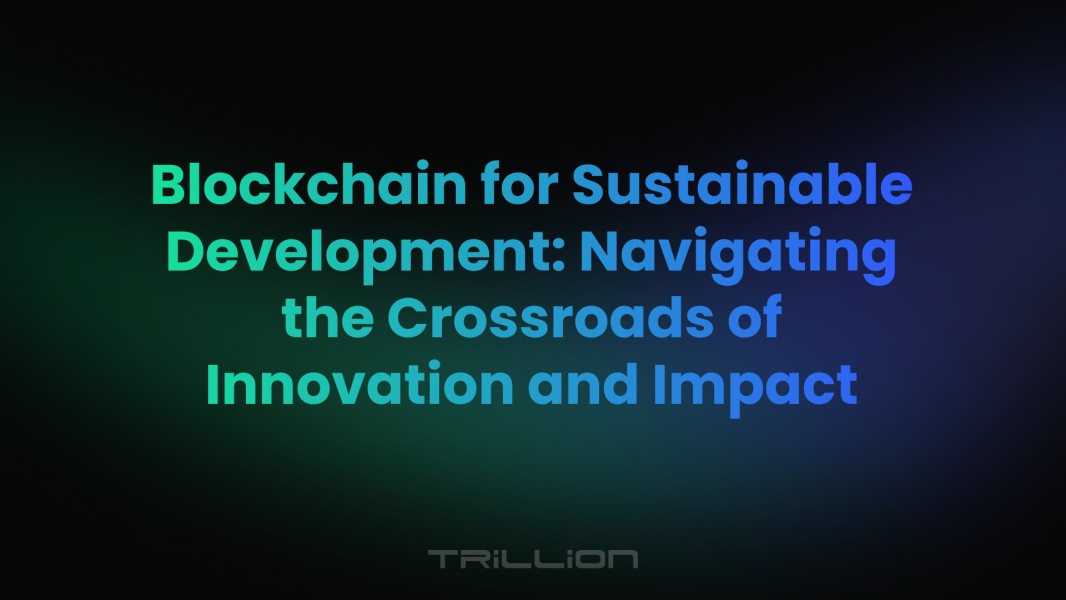
Trillion Platform remains actively committed to the exploration of sustainable development and the incorporation of emerging technologies, in line with its mission. In this ongoing research, our primary focus is on examining how digital solutions can contribute to the creation of a more ecologically sustainable world.
Recent technological advancements have unveiled extensive possibilities, and this report seeks to pinpoint specific areas where technology can play a crucial role in supporting sustainable development.
It is essential to note that Trillion Platform is a project dedicated to developing initiatives aligned with the UN Sustainable Development Goals (SDGs), with a particular commitment to advancing goals 3, 4, and 8. The Trillion Platform encompasses an ecosystem that includes an EdTech platform, a distinctive blockchain tailored to address global UN SDGs.
What is a ReFi?
The current financial system operates in an extractive mode, aiming to maximize returns on investment quickly, often overlooking negative impacts on climate change, human health, and the planet's ecosystem. Businesses primarily focus on the efficiency of operations, such as factories, manufacturing plants, gold mines, or oil fields, emphasizing cost reduction and increased profits.
Conversely, an increasing number of individuals recognize the need for new business approaches that align economic goals with objectives to enhance the climate and nature of our planet. Many countries, along with the United Nations, emphasize sustainable development goals.
You might have come across the buzzword "ReFi," which stands for Regenerative Finance. ReFi is a movement dedicated to transforming the current extractive, profit-driven model into a regenerative economy where behavior that benefits the planet is not only encouraged but also profitable. It prioritizes the well-being of the planet over purely financial gains.
ReFi is grounded in web3 principles and building blocks like trust, transparency, and tokenization. For instance, blockchain technology can address challenges in the voluntary carbon credit market by resolving double-spending issues and establishing trust between buyers and entities generating carbon credits through CO2 reduction. DeFi instruments can contribute to enhancing liquidity in the fragmented carbon credit market.
Currently, many projects are shifting their focus toward social and environmental impacts, prioritizing positive outcomes for both people and the planet.
Impact-to-Earn
In the contemporary landscape, various programs and mechanisms already exist to reward individuals for engaging in positive actions. An illustrative example is the practice of inflating the original price of a can of soda by incorporating a deposit, which is later refunded upon returning the bottle. This strategy serves as a potent motivator, as individuals are mentally inclined to reclaim the extra amount they paid. This approach has proven successful in certain European countries.
These innovative methods, combined with web3 tools, can be harnessed to make environmentally friendly behavior more desirable, such as waste reduction, proper trash sorting, and the use of eco-friendly transportation.
Blockchain technology, a fundamental component of web3, can play a pivotal role in supporting initiatives within regenerative finance through various avenues:
-
Rewarding positive behavior: Utilizing tokens to reward individuals or organizations for environmentally and socially responsible actions, such as carbon emissions reduction, wildlife habitat protection, or support for local farms. This creates a financial incentive for stakeholders to contribute to the well-being of the planet and its inhabitants.
-
Enabling transparency: Tokenization provides a transparent and auditable record of sustainability and regenerative activities, facilitating the tracking and verification of positive impact. This enhances accountability and trust in sustainability initiatives, potentially fostering broader adoption of sustainable practices.
-
Creating a circular economy: Tokenization supports the establishment of a circular economy by enabling the tracking and trading of recycled materials, thereby reducing waste and promoting resource efficiency. This contributes to the development of a more sustainable and resilient economic system.
In essence, tokenization possesses the potential to incentivize and streamline positive behavior aligned with sustainability and regenerative principles. By establishing a more transparent, accessible, and accountable financial system, tokenization emerges as a catalyst for driving positive change and shaping a future that is inherently beneficial for the planet.